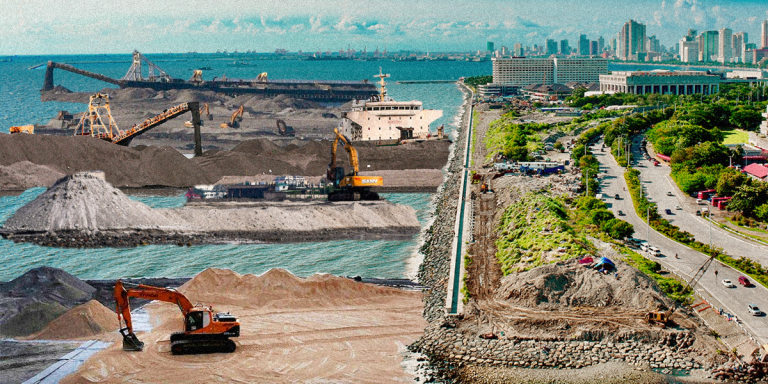Pope Francis’ legacy in bridging science and faith
Since the start of his papacy in 2013, Pope Francis has been an advocate for scientific research and environmental protection.
Science and religion have often been pitted against each other, but the late Pope Francis led a papacy that sought harmony between the two. His papacy provided a haven for melding science and faith, especially in an era of rising science denialism and misinformation.
“Science and faith follow two different and parallel paths, between which there is no conflict,” said Pope Francis in an astronomy conference of the Vatican Specola in 2024. “On the contrary, these paths can harmonize with each other, because both science and faith, for a believer, have the same matrix in the absolute Truth of God.”
His views on science and religion stemmed from his background in chemistry. At age 14, he attended a technical secondary school in Argentina with a focus on chemistry and eventually earned a diploma. He then worked as a chemical technician at a food laboratory.
In Elisabetta Piqué’s biography of Pope Francis, his sister, María Elena, recalled one summer that their mother had asked Jorge what he wanted to do, to which he replied he wanted to study medicine.
Later, while cleaning his room, their mother found books of theology and Latin. “Weren’t you going to study medicine?” she asked. “Yes, but the medicine of the soul,” was Jorge’s reply. That marked the beginning of his religious journey.
Since the start of his papacy in 2013, Pope Francis has been an advocate for scientific research and environmental protection. He chose the name Francis in honor of St. Francis of Assisi, a patron of animals and ecology.
Just four months into his leadership, he released his first encyclical letter addressing how faith and science are intertwined. For Pope Francis, faith broadens the horizon for possible discoveries to be revealed through scientific investigation. “Faith encourages the scientist to remain constantly open to reality in all its inexhaustible richness,” he added.
Pope Francis had often encouraged scientists to never lose wonder and awe for the world and the universe. “Perhaps the most amazing thing about this universe is that it contains creatures like us, men and women who possess the ability to observe it with wonder and to ‘interrogate’ it,” he said in a message to participants of the Vatican Observatory’s summer school in 2023.
“May you be inspired always by the love for truth and awestruck by all that each fragment of the universe set before you.”
One of the Pope’s most memorable dicta was on creationism and evolution. For much of its history, the Church and its leaders have resisted scientific discoveries thought to oppose Catholic beliefs, including the Big Bang theory and the theory of evolution. But Pope Francis saw no contradiction and embraced these theories.
“The ‘Big Bang’ that today is considered to be the origin of the world, does not contradict the creative intervention of God. On the contrary, it requires it,” he said in a speech at the Pontifical Academy of Sciences in 2014. “Evolution in nature does not conflict with the notion of Creation, because evolution presupposes the creation of beings who evolve.”
During the pandemic, amid the rise of vaccine misinformation and anti-vaxxers, he affirmed the importance of vaccines and encouraged everyone to be vaccinated. “Vaccination is a simple but profound way of promoting the common good and caring for each other, especially the most vulnerable,” he said.
But perhaps his most passionate voice came out when talking about the destruction of the planet. He criticized strongmen and corporations that are the main contributors to climate change and the worsening environmental conditions.
In his book Laudato si’, Pope Francis condemned “politics concerned with immediate results, supported by consumerist sectors of the population.” After all, climate change arose from years of excessive human activity, leading to resource depletion and increased levels of greenhouse gases that cause global warming.
When it was released in 2015, Laudato si’ sparked global interest in environmental issues and inspired more people to take action. For instance, the Laudato Si’ Movement and Laudato Si’ Research Institute in Oxford were founded, providing support to individuals and foundations focused on caring for the environment.
Then, in 2019, Pope Francis opposed former Brazilian President Jair Bolsonaro’s policies that were exacerbating deforestation and wildfires in the Amazon rainforest. He urged Amazonian Bishops to protect the rainforest. “We are water, air, earth, and life of the environment created by God,” he wrote in a document titled Querida Amazonia (Dear Amazon). “For this reason, we demand an end to the mistreatment and destruction of Mother Earth. The land has blood, and it is bleeding; the multinationals have cut the veins of our Mother Earth.”
Ahead of COP28, an annual gathering of global leaders to tackle climate and environmental policies, Pope Francis also released an apostolic exhortation calling out wealthy countries and climate change deniers.
“Despite all attempts to deny, conceal, gloss over or relativize the issue, the signs of climate change are here and increasingly evident,” he wrote, adding that the global climate crisis undeniably correlates with the increasing greenhouse gas emissions. “The overwhelming majority of scientists specializing in the climate support this correlation, and only a very small percentage of them seek to deny the evidence.”
The Pope recognized that the richest countries gain the most, while the poorest pay the price, disproportionately suffering from the consequences of climate change. Extending his empathy to countries in the Global South, he visited the Philippines when Tacloban was devastated by super typhoon Yolanda in 2015.
Several times, Pope Francis has taken the opportunity to promote scientific advancements and care for the environment, up until his final moments. Last February 26, while on his hospital bed, he wrote a message to the Pontifical Academy of Life. “Listening to the sciences continually offers us new knowledge,” he wrote.
Two months later, on April 21, Pope Francis rested peacefully, marking the end of a papacy that highlighted trust in science and benevolence to the environment.








